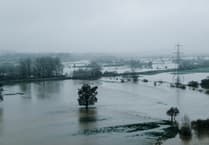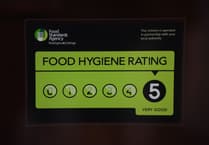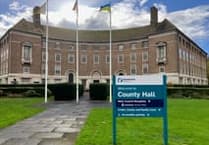THE Wiveliscombe Area Partnership (WAP) is celebrating after its transport charity was saved by almost £20,000 of lottery funding.
The future of the Queen’s award-winning ‘Wivey Link’ transport service had come into doubt after the bankruptcy-threatened Somerset Council announced changes to its grant funding.
However, a £19,577 National Lottery funding boost has helped assure that the volunteer-run charity will continue to operate and help combat rural isolation.
The charity was given further backing by Wiveliscombe Town Council, who donated £6,000 to the charity - and encouraged neighbouring parish councils to donate as well.
Pauline Homeshaw, the Chair of WAP, said: “We’re delighted that The National Lottery Community Fund has recognised our work in this way. Thanks to National Lottery players we will be able to continue our work while we plan for the future.
“We are equally grateful for the ongoing support of the Wiveliscombe Town Council and many Parish Councils who support our work so that we can continue to deliver for their community who need us.
“Without the Council’s support, many more people would be isolated and lonely. Community Transport is vital to rural areas like ours and as we are thrown back on our own resources, working more closely together is key to the future.”
Roger Wilson, Chair of Wiveliscombe Town Council, added: “Wivey Link is one of the many volunteer-led groups based in our town and the Council is delighted to support this vital transport charity as it benefits our community as well as providing access to other local towns."
Last year the Wivey Link made more than 10,000 journeys for its over 600 members, including to 841 hospital appointments and 3,970 trips to help members access social care.
The service is made possible by around 40 volunteer drivers who give up their time to help rurally isolated individuals get out and about - whether that be for appointments or food shopping.
The charity said that The new funding will ensure they can focus on providing essential journeys for members of the community who are rurally isolated, vulnerable, elderly, disabled or simply have no access to public transport.




